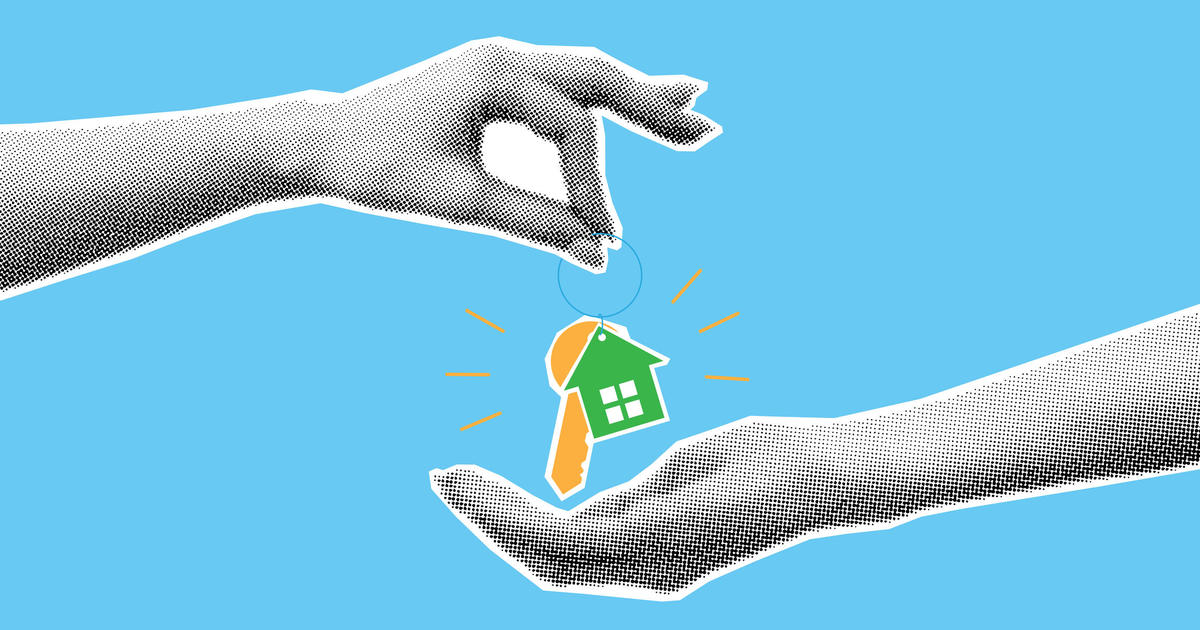Filipino food-truck owner worries hiking prices will scare away buyers
Kristen Brillantes and her partner opened The Sarap Shop in Mission Bay, San Francisco, in 2016. Over the past six years, the couple has operated a food stand at the Golden State Warriors Chase Center and launched a catering and consumer packaged-goods arm of the business. Now, The Sarap Shop faces soaring meat prices as consumers are tightening budgets. Brillantes spoke to MoneyWatch about how she covers increased costs while still providing affordable, nutritious food to her community. This interview has been edited for length and clarity.
CBS MoneyWatch: Are your expenses rising? How are you covering increased costs?
Kristen Brillantes: It has been incredibly challenging to have inflation and also trying to be mindful of how do we raise salaries and hourly rates to keep up.
Proteins, for example, jumped about 30% in price and it's been hard to source all of our ingredients locally.
We are trying to figure out a balance between using local ingredients versus things that are cheaper because we buy them on sale. We're making adjustments around what kinds of proteins we can offer. For example, we used to pay $1.20 per pound for pork, and one week it was almost $4.
We didn't know how to integrate that [price increase] into our menu — but when it's a bestseller we were worried if we took it off, not as many people would come dine with us. So we ran different specials inspired by personal memories or experiences growing up Filipino. We tried to revive nostalgic dishes or substitute in other things, or we made them protein-free. And that helps a little bit but we also had to raise our prices.
How have consumers responded to the price hikes?
It's hard for them — with the hiring freezes we are hearing about and people losing their jobs. For example, we used to cater a bunch of weddings, but now it feels different in the planning process because everyone is in such a pinch.
People have tightened their budgets and with us raising prices, it becomes this really awkward conversation with our customers around who closes the gap, when all of us are struggling financially without additional help from the government.
How do you cover costs while still making your food accessible community-wide?
We use high-quality, local ingredients as much as possible because we want people to come to eat food that's nutritious, but there's a cap on how much you can raise prices and still make it accessible for seniors, students, teachers.
We're trying to rework our loyalty program to always offer discounts to health care workers, teachers, folks in working environments where it's hard to earn a living wage. That's how we're trying to make food accessible to communities that are from underserved financial backgrounds.
Have you lost any customers with the price hikes?
Most people have been supportive, but you still get a few folks who come by and say something discouraging. I wish I could tell folks who dine out at different establishments to not complain, especially to underrepresented groups in food the industry.
We carry a lot of baggage and when people get upset, it is re-traumatizing.
What kind of trauma are you talking about?
Because there has been so much colonization in the Philippines, there is a history of this mentality where, because we were so resource-constrained, if one person survived, someone else couldn't.
I never want anybody in the community to feel like if one person is succeeding it's at the expense of [another's] own success. We're trying to heal some generational trauma when it comes to finances, success and stability, and it's really wild to try to do that in the context of the pandemic. It's already hard to do that without the pandemic, and in the pandemic it's literally triggering everybody's scarcity mindset.
What are you most afraid of as the U.S. faces a potential recession?
I am a first-generation business owner; I was not born into generational wealth. The responsibility for my family's finances lies with us. When we think about how we build our business in a capitalist society, we want to be integrated into community. So when we're raising prices, that can be scary because what if I lose customers or my business and my dream? I chose a different path and it's a lot of weight to carry.
Our rent has not increased yet and I'm really hoping it doesn't. It never went down, even during lockdown, because our landlords were also small business owners and couldn't afford to give us a discount.
What would you like your customers to know? How can others help your business thrive?
I trust when people say they're going to eat local even when prices are going up, and we see that come all the way through. But we have to remind folks that they have power as consumers.
We are consumers too, so we think about that a lot when spending our dollars. We spend our dollars in places where we know it will be reinvested in the community.
There are ways people can not just financially support local businesses but emotionally, too. If you notice your local coffee shop raising prices, give a high five to them. It really means a lot because it took a lot of emotional effort to do that.
If you work in a big organization that is resourced and stable, use those resources as a bridge to help local businesses that you care about.




